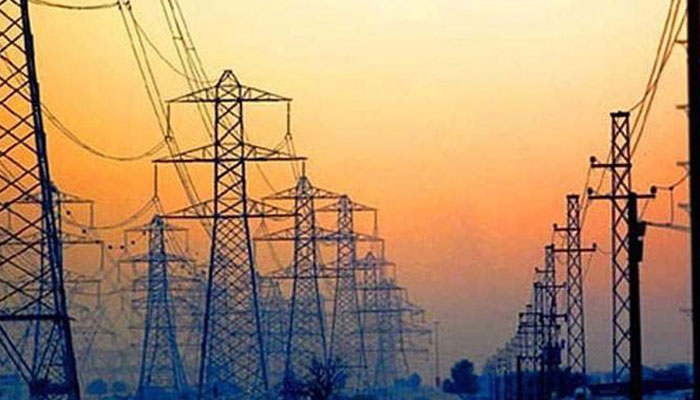Through solar power: Govt determined to scale down power tariff by 20pc
The top officials said the solar electricity will be used during the daytime, which will enable the government to close down the costly power generation of 5,000MW via thermal power plants
ISLAMABAD: In a bid to generate cheaper electricity up to 5,000 megawatts (MW) through solar plants, the government has started the spadework and is determined to start generation in one and a half year's time. The initiative will reduce the average power tariff by almost 20 percent.
The top officials at the Ministry of Energy told The News the solar electricity will be used during the daytime, which will enable the government to close down the costly power generation of 5,000MW via thermal power plants. The induction of cheaper 5,000 MW of solar energy into the system would not only reduce the oil import bill but also bring down the average electricity tariff by around 20 percent, said the officials.
When contacted, the secretary Power Division confirmed the development and added, “We are working on the plan to generate 4,500-5,000 MW of electricity through solar plants in more than a year's time.”
In this regard, the implementation policy for speedy construction of solar power plants will be ensured, so that the government could halt the costly electricity generation during daytime from 50 percent load-based power plants, said the secretary, adding that it would decrease the average electricity tariff by around 20 percent. However, during night time, the load power plants would run on the full scale.
He said the solar electricity tariff is around 3 to 3.5 cents per unit but the government would hold the international competitive bidding (ICB) for various solar power projects having an electricity generation capacity of 5,000 MWs. After ICB, the government will be able to sign competitive contracts for solar power plants that may be lower than the 3 cents per unit tariff, said the secretary.
The authorities concerned, he said, would try to construct the solar plants close to the grids to avoid additional costs and they have already planned to install solar plants close to RLNG-based power plants at Trimmu and Haveli Bahadur Shah.
“We will utilise grids of RLNG-based power plants for evacuation of electricity from solar plants as both RLNG-based power plants will not operate during daytime.” Mostly, the electricity in the country is generated through LNG, furnace oil, and coal, which is no longer sustainable for the power sector itself and causing a massive increase in the cost of doing business in the country. The cost of these fuels have increased in the international market mainly because of the Russia-Ukraine war. The demand for LNG in Europe has tremendously soared because of the halt in the use of Russian gas. The EU countries and the US have imposed economic sanctions against Russia for its onslaught on Ukraine.
-
 Google Warns Of State-sponsored Cyberattacks Targeting Defense Sector Employees
Google Warns Of State-sponsored Cyberattacks Targeting Defense Sector Employees -
 Ransom Deadline Passes: FBI Confirms ‘communication Blackout’ In Nancy Guthrie Abduction
Ransom Deadline Passes: FBI Confirms ‘communication Blackout’ In Nancy Guthrie Abduction -
 Jeff Bezos Hints At Blue Origin Moon Plans As Elon Musk Responds With Cautious Praise
Jeff Bezos Hints At Blue Origin Moon Plans As Elon Musk Responds With Cautious Praise -
 Zach Bryan Slams Turning Point USA Alternative Halftime Show: 'Embarrassing As Hell'
Zach Bryan Slams Turning Point USA Alternative Halftime Show: 'Embarrassing As Hell' -
 South Korea Blames Coupang Data Breach On 'management Failures,' Not Cyber Attack
South Korea Blames Coupang Data Breach On 'management Failures,' Not Cyber Attack -
 ‘Disgraced’ Andrew More Concerned About ‘issue Of His Legacy’ Than Epstein Links
‘Disgraced’ Andrew More Concerned About ‘issue Of His Legacy’ Than Epstein Links -
 Instagram Plans New Snapchat-style App ‘Instants’ Amid Rising AR Competition
Instagram Plans New Snapchat-style App ‘Instants’ Amid Rising AR Competition -
 Safer Internet Day 2026: Is Social Media Ban The Only Way To Protect Kids?
Safer Internet Day 2026: Is Social Media Ban The Only Way To Protect Kids? -
 Piers Morgan Finally Breaks Silence On Kidnapping Of Savannah Guthrie's Mother Nancy
Piers Morgan Finally Breaks Silence On Kidnapping Of Savannah Guthrie's Mother Nancy -
 Lenore Taylor Resigns As Guardian Australia Editor After Decade-long Tenure
Lenore Taylor Resigns As Guardian Australia Editor After Decade-long Tenure -
 'Mortified' Princess Eugenie, Beatrice Plan Interview To Finally Speak Truth In Sarah Ferguson, Andrew-Epstein Scandal
'Mortified' Princess Eugenie, Beatrice Plan Interview To Finally Speak Truth In Sarah Ferguson, Andrew-Epstein Scandal -
 Lewis Hamilton Spent Years Trying To Catch Kim Kardashian's Attention?
Lewis Hamilton Spent Years Trying To Catch Kim Kardashian's Attention? -
 Royal Strategy Revealed As King Charles, Prince William Issue Statements On Andrew Row
Royal Strategy Revealed As King Charles, Prince William Issue Statements On Andrew Row -
 Inside Will Smith's Struggle To Revive His Career After Infamous Oscar Incident
Inside Will Smith's Struggle To Revive His Career After Infamous Oscar Incident -
 What’s Coming Out Of Meghan Markle’s War Against Prince William? Inside People’s Unease
What’s Coming Out Of Meghan Markle’s War Against Prince William? Inside People’s Unease -
 Australia Seeks Urgent Meeting With Roblox Over 'Disturbing' Content Complaints
Australia Seeks Urgent Meeting With Roblox Over 'Disturbing' Content Complaints




